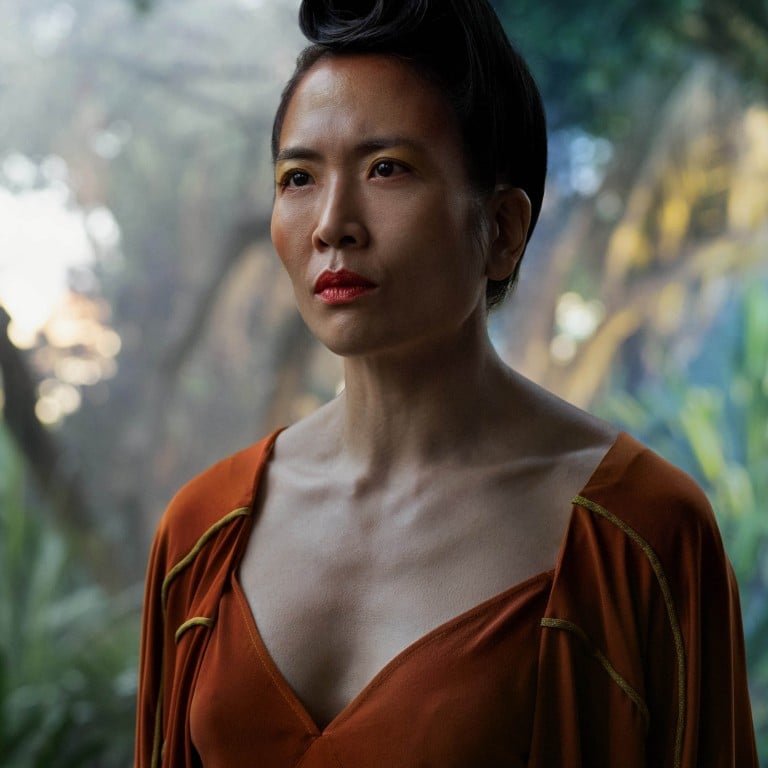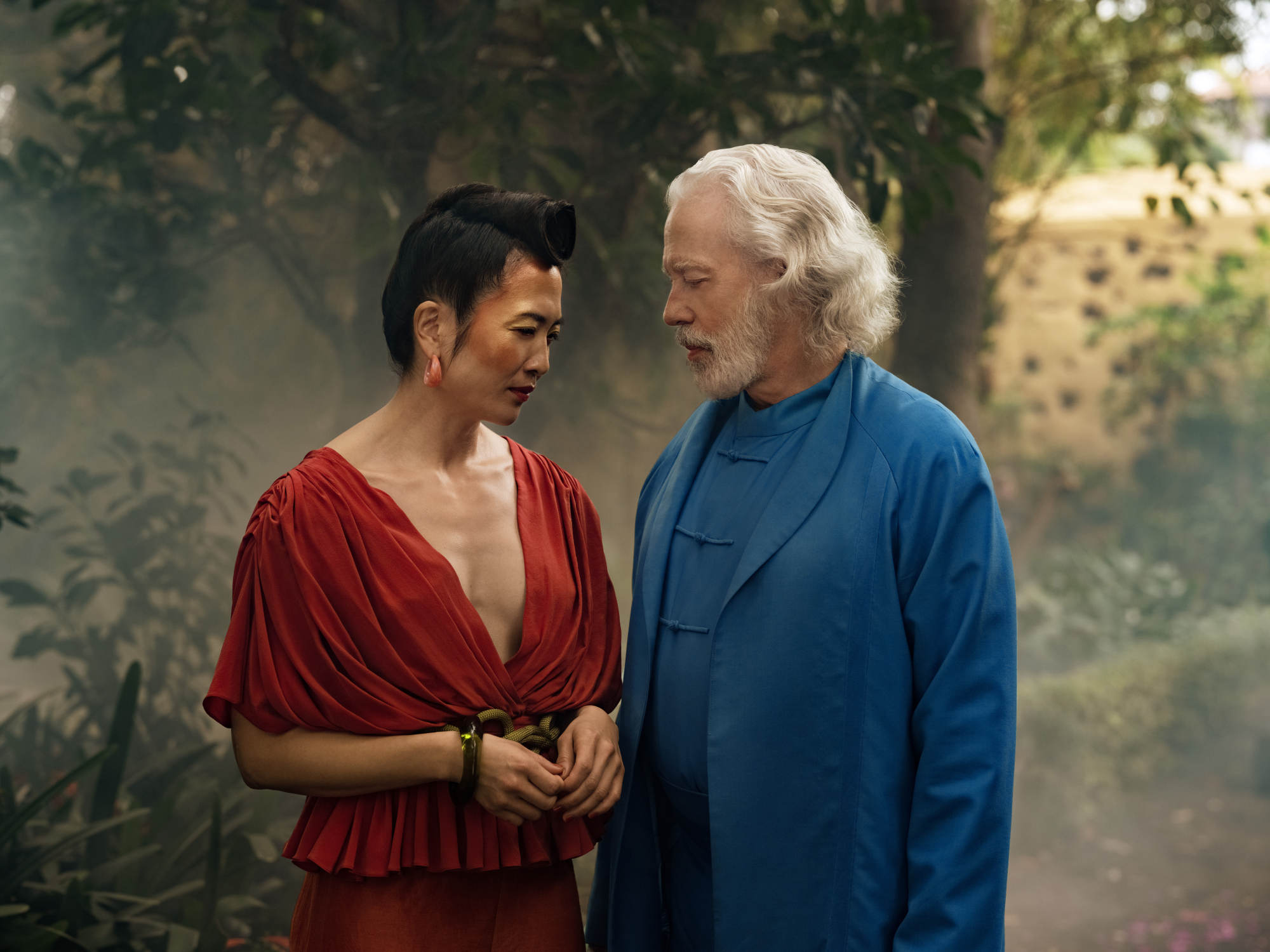
Crazy Rich Asians inspired a career ‘renaissance’: Sandra Yi Sencindiver, Apple TV+ and Amazon actress, has a message for her country, Denmark, about on-screen representation
- Sandra Yi Sencindiver, an American-Danish-Korean actress seen in Foundation and The Wheel of Time, felt let down by the screen parts offered her in Denmark
- It was not until Crazy Rich Asians that Sencindiver saw a global market for East and Southeast Asian representation existed – and seized the chance to break out
Since her international breakthrough on Apple TV+ and Amazon shows, American-Danish-Korean actress Sandra Yi Sencindiver has taken her career’s “second renaissance” as a call to redress what she says is Denmark’s lack of diversity and representation in the arts.
She has appeared in the Scandinavian noir dramas The Bridge and Backstrom and wrote and directed her own short film, 2023’s Watch, which depicts two women sharing a childhood secret.
Alongside her extensive advocacy works, she has – as artistic director of theatre company Danskdansk (“Danish Danish”) – sought to challenge conceptions of what being Danish means and looks like.
Born in Busan, South Korea, Sencindiver and her sister were adopted by an American father and Korean mother before her father remarried a Danish woman when they were eight.
Being cast as a zebra helped this actress decide acting was her passion
One year after moving to Denmark at the age of nine, Sencindiver wrote her first play in Danish, which she performed with her entire class.
Despite being encouraged by her family to learn classical piano, sing, dance and act, she never viewed the profession as a future career.
“Nobody in the family I came from has really done the arts. It was like a healthy hobby,” Sencindiver says. “It wasn’t part of my reality that it was an actual job. I think a lot of working-class families feel that way.”
“Sometimes you just need that little push to go for something you didn’t know existed for you. Having somebody believe in you makes all the difference,” Sencindiver says.
She now tries to encourage others too, complementing her career-long goal of “fighting the patriarchy and making the arts more inclusive” – something of great importance to a woman of colour, she says.
Actors want to portray people with flesh, blood, motivation, dreams, hopes and nuances … but [the industry] just wanted me to be Asian and speak with an accent
After Miss Saigon – now widely regarded as problematic, even racist, for its depictions of East and Southeast Asian characters – the screen work in Denmark offered to Sencindiver primarily involved “flat, two-dimensional” parts as a cleaner or a nanny.
The shock of this pushed her increasingly toward the “broader imagination” of theatre instead of the screen.
“Actors want to portray people with flesh, blood, motivation, dreams, hopes and nuances … but [the industry] just wanted me to be Asian and speak with an accent,” Sencindiver says.
Longing to be a part of this movement, Sencindiver set out to find international representation, and landed the role of Lady Amalisa in Amazon Prime’s fantasy series The Wheel of Time.
Sencindiver says she found the arc of Lady Amalisa’s character, as a highly flawed protector of her realm, “so rich and fun to do” after feeling that such parts would never be available for someone with her “experience, body, identity and gender”.

Sencindiver will also appear in Netflix’s Geek Girl, a series about a bullied, neurodivergent teenager who is scouted by a modelling agency.
Sencindiver’s “second renaissance”, as she terms it, as an international actress sends a strong message to the Danish industry as the screening giants hire based on talent and “have an audience wanting plurality and diversity on their screen”.
According to Sencindiver, racism is challenging to discuss in Denmark thanks to the perception of it as an “evil, conscious act”, rather than being caused by institutional or unconscious bias.
Addressing this and other forms of prejudice, she and four other actresses of colour launched a campaign called “A Bigger Picture” in February, highlighting “the misrepresentation and underrepresentation of diverse bodies” in Denmark’s film and television industry.
Re-imagining the posters of three high-profile Danish television productions with all-white, able-bodied cast members, they show an alternative of people who better represent age diversity, gender, sexuality, skin colour, family, religion, socio-economic backgrounds, body types and people with disabilities.
While these conversations are just beginning, Sencindiver says she and her colleagues have received positive responses from organisations like the Danish Film Institute and are also nominated for a new award from Denmark’s Ministry of Culture and Arts celebrating contributions to gender equality and representation.
Going forward, Sencindiver says representing different ethnicities, genders and bodies on screen has the potential to provide great artistic enrichment, which she hopes Denmark will embrace.
“A true artist wants to make something new, and representation is just another tool to do that – a very hands on tool to make yourself look at things in a new way. I think it’s amazing, and we’ll only get more amazing art,” Sencindiver says.

